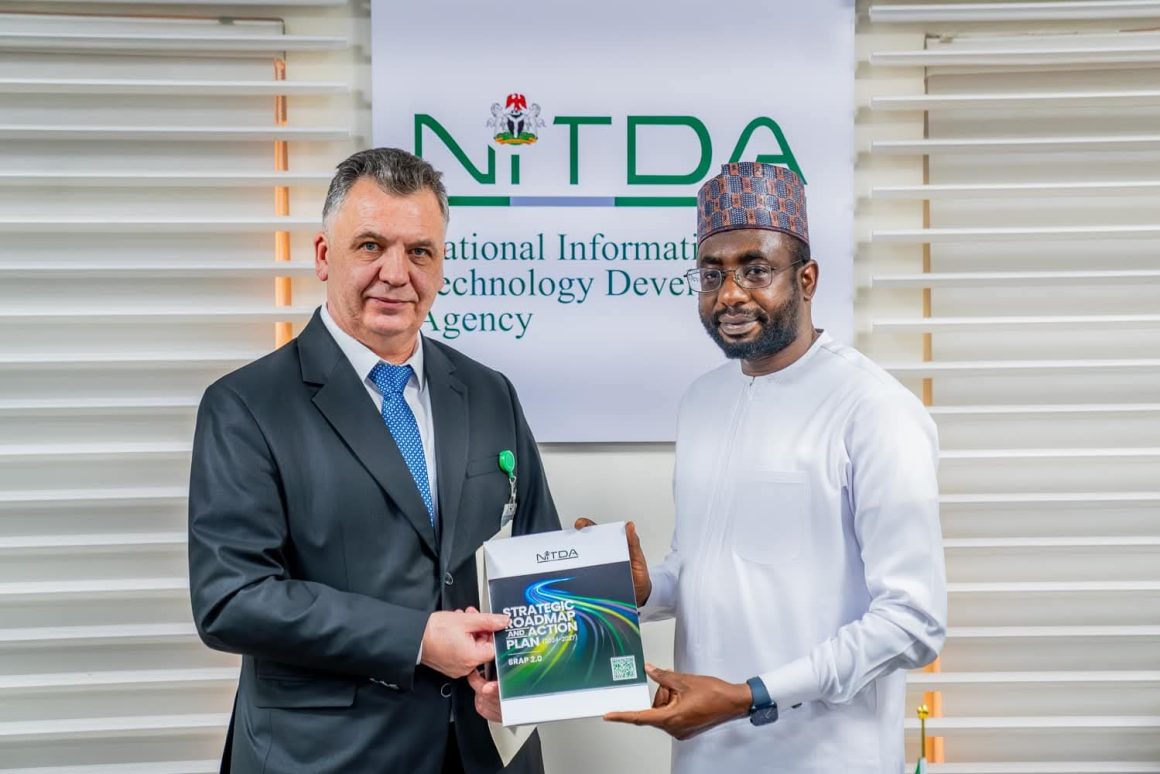The National Information Technology Development Agency (NITDA) is stepping up efforts to establish a one-stop-shop portal for all government services as part of its ongoing commitment to implementing the current administration’s Renewed Hope Agenda, specifically in the area of enhancing governance for efficient service delivery.
The project is in line with the President’s directive to digitize 75% of government services by 2027, a goal that many stakeholders are currently actively pursuing.
This was revealed when a delegation from the Ukrainian Embassy in Nigeria, headed by its ambassador, Mr. Ivan Kholostenko, visited the Agency’s Corporate Headquarters in Abuja with the DG NITDA, Kashifu Inuwa CCIE, and his team to discuss potential areas of cooperation between the two nations on how to improve government processes’ productivity, transparency, and trust.
The NITDA DG pointed out that the Agency has been instrumental in forming the design, standard guidelines, and implementation strategies for the establishment of a centralized e-government portal, like OneGove.net, despite years of efforts to create such a portal.
Nonetheless, he claimed that the motivation to pursue the agenda has been rekindled by a renewed dedication and in-depth study of international best practices.
“We have been doing research on how UK, Kenya, and other countries have achieved this, so I believe we can learn from you as well to see how we can build our own,” the DG said, adding that the Agency has been studying how other nations have successfully implemented the unified digital government services platform.
“We can learn from their experiences to develop a framework that works for Nigeria, even though such models are not entirely transferable between nations,” he continued.
Inuwa revealed that NITDA has found several models from other countries that permit government agencies to offer services via an Application Programming Interface (API), while other countries only offer services through legally-backed portals. Inuwa suggested introducing legal frameworks to support the initiative.
“In order to facilitate a seamless and successful digital transformation, we must have these laws in place and begin the process of enacting them,” he asserted.
Inuwa also revealed that in order to guarantee compliance with international digital governance standards, the agency is collaborating with the International Telecommunication Union (ITU). This collaboration is anticipated to yield significant knowledge and understanding regarding the organization of Nigeria’s digital transformation plan.
This program is regarded as a vital step in improving government operations’ efficiency, lowering corruption, and fostering transparency. Nigeria will have an intelligent, smooth, and citizen-friendly government service experience by utilizing international best practices in line with national policies and digital transformation objectives, he said.
In his remarks, Mr Kholostenko stated that Ukraine operates a digital platform known as the Diia application, which is an ecosystem that includes all state registers and databases and can perform all state and government services for citizens in one location.
He revealed that his country intends, through its Ministry of Digital Transformation, to broaden the scope of this initiative and provide full support to other countries in developing such a system.
“I want to note that we are interested in expanding and assisting other countries in creating a digital state, reducing bureaucracy, reducing the time required to obtain state services, and, of course, reducing corruption risks, because human-to-human interaction is minimal,” he stated.



Leave a Reply